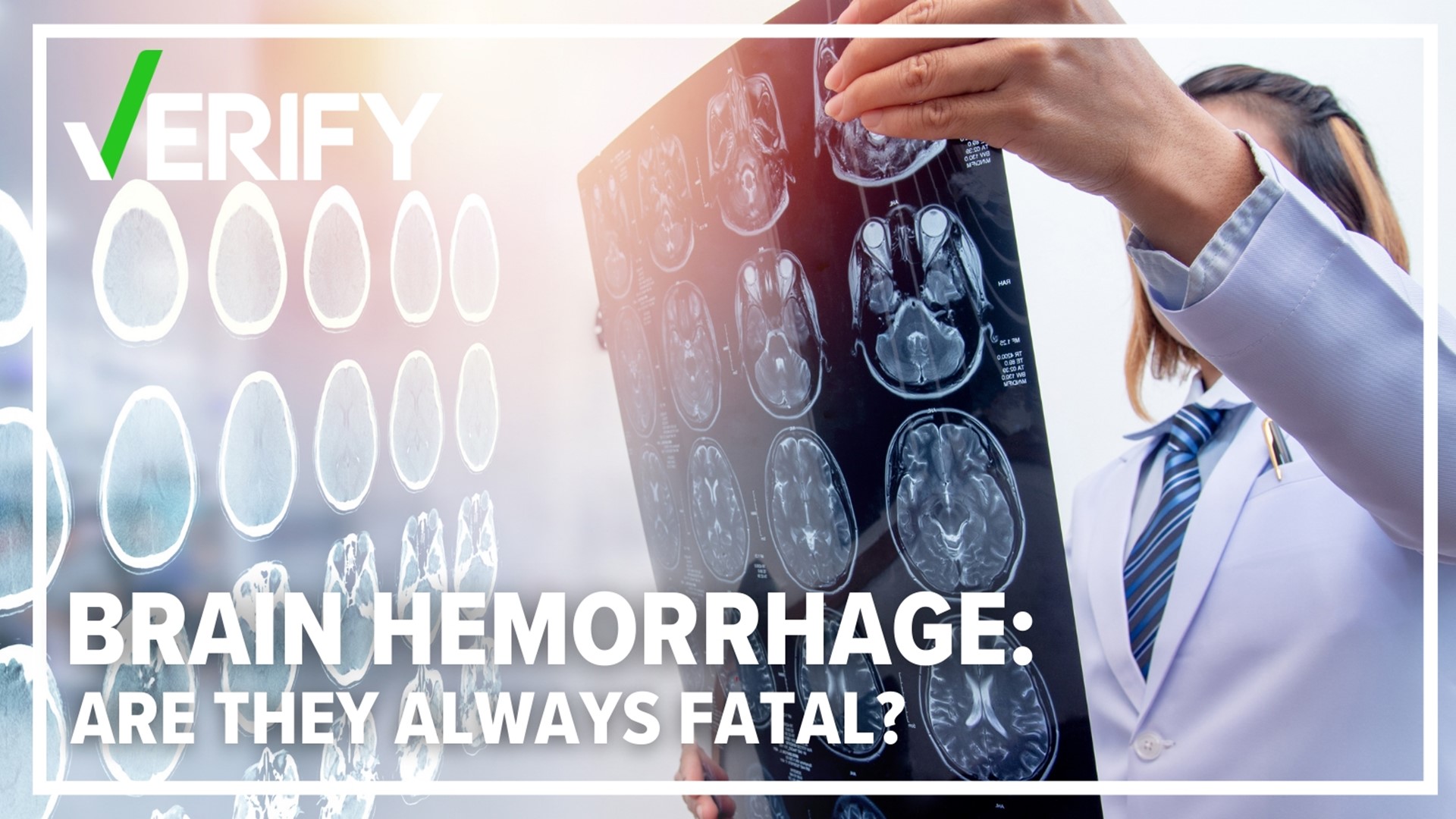CHARLOTTE, N.C. — Liza Burke, a 22-year-old who is originally from Asheville, North Carolina is still recovering in the hospital from a brain hemorrhage.
The University of Georgia student was on spring break with friends in Mexico when she told friends she had a headache and went to her room. Her friends later found her unresponsive.
This has gained a lot of attention and many on social media are making claims about brain hemorrhages.
Doctors say Burke suffered from a rare condition called arteriovenous malformations. According to the Mayo Clinic, this is when blood vessels become entangled and are incorrectly connected to arteries and veins.
Doctors say the blood vessels can weaken or rupture, which can lead to a brain hemorrhage. Many people took to WCNC Charlotte's social media pages claiming if you get a brain hemorrhage or these AVMs rupture, it's always fatal.
THE QUESTION
If you suffer from a brain hemorrhage, is it 100% fatal?
OUR SOURCES
THE ANSWER
No, brain hemorrhages are not 100% fatal.
WHAT WE FOUND
There are several different types of brain hemorrhages. These all depend on where the bleeding happens inside the brain.
There are usually four different types of hemorrhages each of them can have different risk factors different causes and different prognoses.
But are these hemorrhages always deadly?
"It's not always fatal. It’s a very serious condition it requires emergency medical attention," Kohli said. "But we hope that most of our patients after a brain hemorrhage will have a long, full life."
According to the Cleveland Clinic, the seriousness and outcome of a brain bleed depend on its cause, location inside of the skull, size of the bleed, and the amount of time that passes between the bleed and treatment.
"How well a person does after a brain hemorrhage, whether they live or die, depends on a number of different factors a biggest one of these is their age and their underlying health so a younger person has a better chance than an older person," Kohli added.
According to the Cleveland Clinic, arteriovenous malformations are present in about 1% of the population and about 2% of all hemorrhages are from that each year.
Contact Meghan Bragg at mbragg@wcnc.com and follow her on Facebook, Twitter and Instagram.
VERIFY is dedicated to helping the public distinguish between true and false information. The VERIFY team, with help from questions submitted by the audience, tracks the spread of stories or claims that need clarification or correction. Have something you want VERIFIED? Text us at 704-329-3600 or visit VERIFY.












